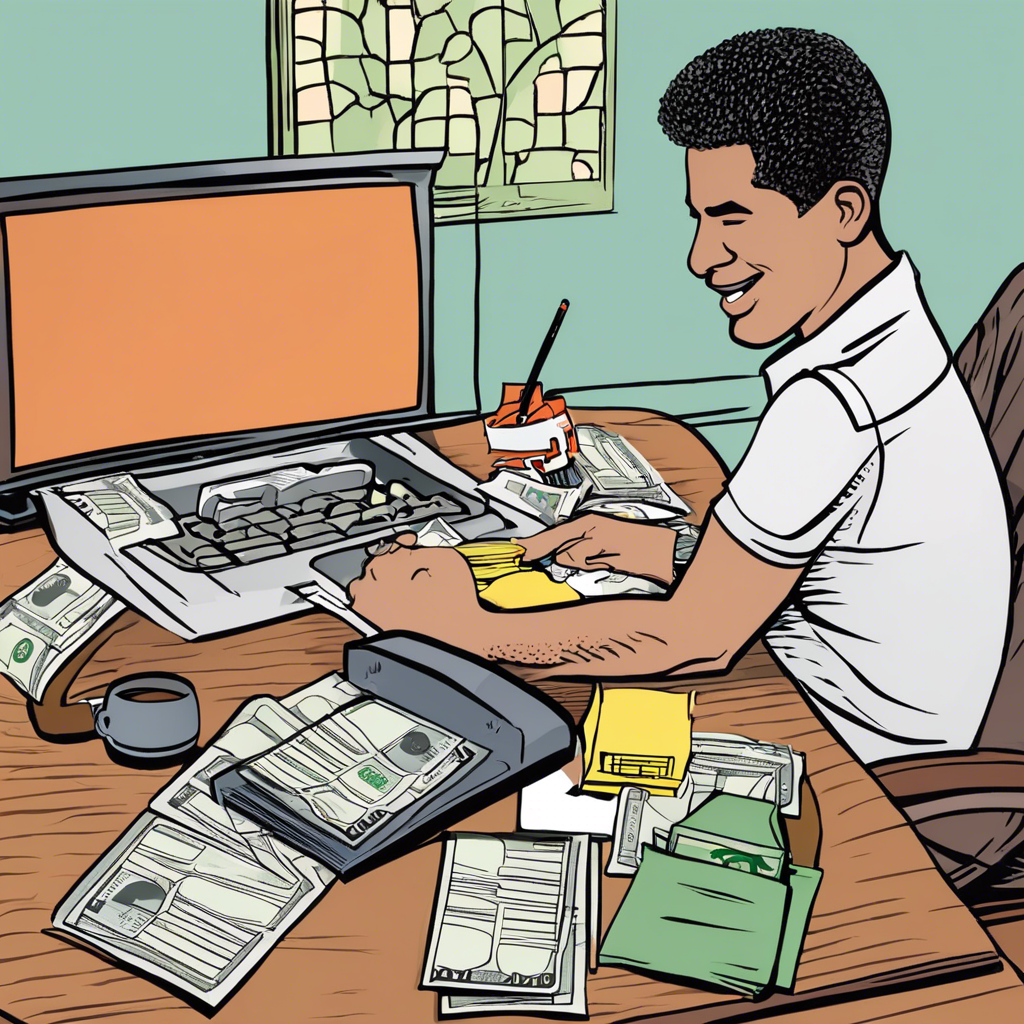Living paycheck to paycheck is a reality for far too many people. It’s a stressful and limiting way to live, often caused by a few common money mistakes that can be avoided. Understanding these mistakes and learning from them can be the first step towards financial freedom. So, let’s take a look at seven financial pitfalls that could be keeping you in this cycle and explore ways to break free.
First and foremost, failing to budget is a huge factor in living paycheck to paycheck. Without a clear understanding of your income, expenses, and spending habits, it’s easy to overspend and have nothing left at the end of the month. Creating a budget and sticking to it is key to taking control of your finances. There are plenty of budgeting apps and spreadsheets available to help get you started; it’s a matter of finding the tools that work for you.
Another common mistake is carrying too much debt. Whether it’s credit card debt, student loans, or car payments, high-interest debt can quickly eat up a large portion of your income. Make it a priority to reduce your debt, and remember that it’s an investment in your future self. Focus on paying off the debt with the highest interest first, and consider consolidating your loans to get a lower interest rate.
Not saving for emergencies is another issue. Life is unpredictable, and unexpected costs can quickly throw you off course. It’s important to have an emergency fund to cover surprise expenses, like car repairs or medical bills. Aim to save enough to cover at least three months’ worth of living expenses, and consider setting up an automatic transfer to build this fund effortlessly.
These are just a few of the financial missteps that can keep you trapped in a cycle of living paycheck to paycheck. Staying informed and taking proactive steps to manage your money are key to achieving financial stability and, ultimately, freedom. So take control, educate yourself, and seek out resources to improve your financial literacy—it could be the best investment you ever make.
Another mistake that contributes to this cycle is overspending on non-essentials. It’s easy to get caught up in impulse buying, whether it’s take-out coffee every morning or the latest tech gadgets. Track your spending for a month to identify areas where you can cut back, and make a conscious effort to distinguish between needs and wants. Cooking at home and cutting back on entertainment expenses can free up a surprising amount of money.
Underestimating the power of saving and investing is another common pitfall. Even if you’re living paycheck to paycheck, it’s important to save, even if it’s a small amount each month. Look into employer-matched retirement plans or automatic savings apps that help you save effortlessly. Investing in yourself through education or skills development can also increase your earning potential and help you break the paycheck-to-paycheck cycle.
Not negotiating your salary can also keep you stuck. Many people accept the initial salary offered to them, but this may be keeping you in a financial rut. Do your research to understand the market rate for your skills and experience, and don’t be afraid to ask for more. If you’ve been with the same company for a while, negotiate a raise to reflect your increased value and contributions to the organization.
Finally, not seeking help when needed can prolong financial struggles. Meeting with a financial advisor or counselor can be incredibly beneficial. They can help you create a personalized plan to get out of debt, improve your financial habits, and work towards long-term financial goals. Many non-profit organizations offer free or low-cost financial counseling to get you started on the path to financial freedom.










